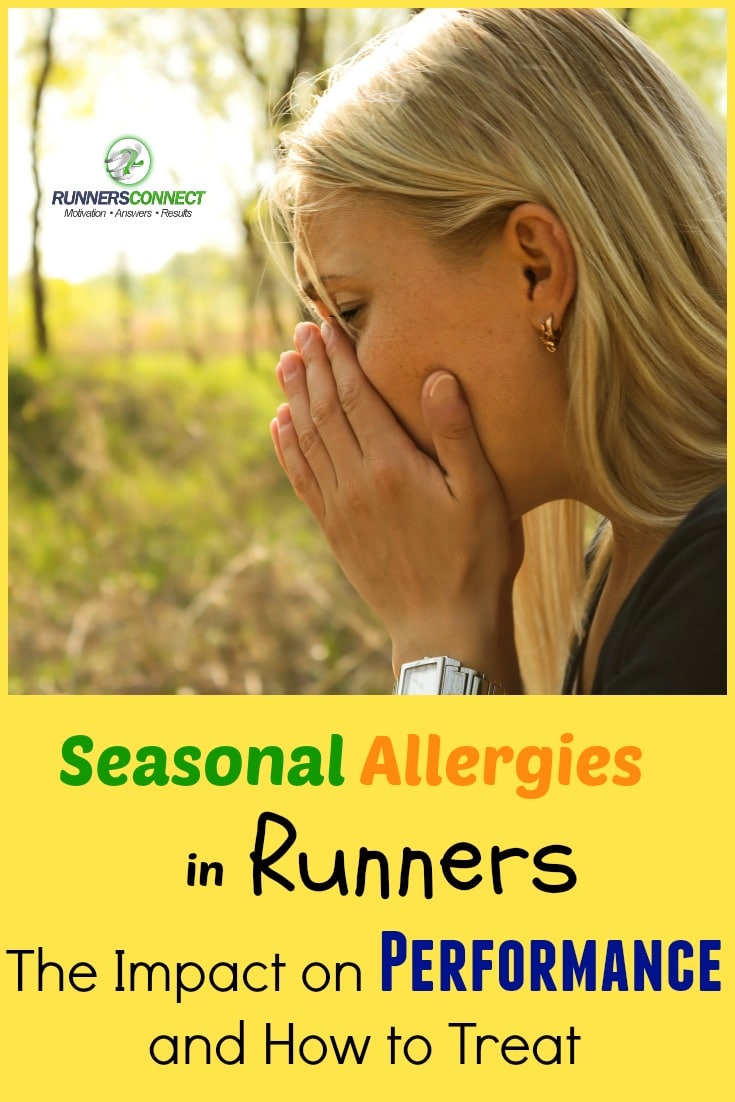 On June 3rd, 2011, the competitive running world was wrapped up in huge anticipation for the Prefontaine Classic 10,000m.
On June 3rd, 2011, the competitive running world was wrapped up in huge anticipation for the Prefontaine Classic 10,000m.
Galen Rupp, widely considered the best American distance runner in decades, was slated to take on American record-holder Chris Solinsky and a slew of Kenyans. But the day of the meet, Galen Rupp’s coach pulled him from the race. The reason? A high pollen count in the Eugene air, which could aggravate Rupp’s asthma and seasonal allergies.
Anyone with seasonal or household allergies knows that they can be a real pain, but how prevalent are allergies in runners, and what effects can they have on performance? For answers, we’ll turn to the scientific literature.
The connection between allergies and performance
While there are unfortunately no studies that directly measure the drop in performance in runners with aggravated allergies, there are several review studies by doctors who treat top-level athletes around the world.
E.W. Derman and colleagues in Cape Town, South Africa report that nasal inflammation, rhinitis, and rhinoconjuctivitis (the medical terms for a stuffy and itchy nose) occur as a result of the body’s reaction to irritants like pollen, and result in the nose being clogged up with mucus and itchy from inflammation.
Though airflow into the lungs is not usually a performance-limiting factor in runners, Derman et al. write that nasal congestion is problematic for endurance athletes because the nose functions to remove some allergens and irritants from the air, while warming and humidifying it as well. The cooler, drier, and more irritant-rich air can cause the airways in your throat to become inflamed, particularly if you have asthma.
Additionally, the “post-nasal drip” of mucus down the back of your throat can irritate the airways as well. Peripheral factors, like poor sleep quality, anxiety, and increased fatigue are also cited as possible performance-affecting results of allergies.
Asthma
Asthma, as we saw several weeks ago, is an under-diagnosed problem in runners. Additionally, it is closely related to allergies.
Ilkka Helenius and others at Helsinki University demonstrated this link in a 1997 paper, which surveyed elite track and field athletes on the Finnish national team. Not only does having seasonal allergies predispose you to developing asthma, but so too does being a runner.
- Since runners (and other endurance athletes) inhale a significantly greater amount of air during exercise when compared to sedentary people or power athletes, they are exposed to greater amounts of pollen and other irritants like air pollution. This results in allergy and asthma rates being quite high among endurance athletes.
- Derman et al. report that fully 50% of South African Olympic athletes had allergies when tested with a skin-prick test, with about 16% having only seasonal allergies, 10% having only perennial allergies (probably to things like house dust mites), and 25% having both. Additionally, 13% of the athletes had asthma as well.
- In addition to the airway and nasal irritation that occurs when allergy sufferers are exposed to irritants, Derman et al. also describe how allergies can degrade reaction time, attention, and vigilance, citing a study which had allergic subjects undergo cognitive testing after being exposed to pollen.
While these issues of mental acuity don’t influence running directly, it is very possible that these central nervous system effects could impede motivation and decrease CNS function overall, affecting running performance, since things that improve reaction time, attention, and vigilance (like caffeine) have a positive impact on your running performance.
Assessment involving athletes
Determining whether an athlete has allergies is a fairly easy task for a doctor, and does not usually require a skin prick test.
Matteo Bonini and others at the University of Genoa in Italy developed a questionnaire for athletes, which can accurately assess whether an individual has allergies. The main questions are fairly straightforward:
- Do you frequently sneeze, or have a running, itchy nose (apart from colds)?
- Did any doctor diagnose you with an allergic disease?
- Do you suspect you suffer from allergy, independent of any medical diagnosis?
- Have you ever had an allergic reaction to food?
- Do you use anti-allergic drugs (antihistamines, topical steroids, “allergy vaccines”)?
While the survey asked other questions, the five listed above proved to be best-correlated with positive results from a skin prick test.
While medical testing to determine what you are actually allergic to is not necessary to diagnose and treat allergies, some doctors, like H.P. Dijkstra and P. Robson-Ansley of the Hospital of St. John and St. Elizabeth in London, still encourage athletes to get skin prick testing so they can be better aware of when pollen or irritant levels might impact their training and racing.
Tree and grass pollens, for example, are worst in the spring and early summer, while house dust mites can be a problem year-round.
How do you treat allergies?
When it comes to treatment, most authors recommend fairly standard treatment methods and medications:
- Non-drowsy antihistamines like loratadine (Claratin, others)
- Intranasal corticosteroids like fluticasone propionate (Flonase, others)
- Other medicine, especially when allergies coexist with asthma.
- Given the wide range of treatment options, it is best to seek the advice of your physician.
- If you are a high school, NCAA, or top-level open or masters runner who would be subjected to drug testing at your races, be sure you bring this up with your doctor, as you may need a therapeutic use exemption for a few of the medications used to treat allergies and asthma.
Of course, the easiest way to avoid problems with allergies is to avoid the irritant which causes them, but for many runners, this simply isn’t an option. However, it is possible to monitor pollen levels so you can be aware of when your allergies might act up.
The American Academy of Allergy, Asthma, and Immunology tracks pollen and mold levels at dozens of stations across the country; you can check out daily pollen levels on their website at http://www.aaaai.org/global/nab-pollen-counts.aspx. A number of other weather sites also provide pollen levels and forecasts, allowing you to keep your allergies in check before they flare up.
Final words
Though the research is still lacking in exactly how much allergies can set you back, anybody with a bad case of hay fever or pollen-aggravated asthma can attest that trying to train or compete with allergies can be huge struggle.
- Runners should be aware that high pollen or irritant exposure can affect their lung and airway function, and might even dampen the central nervous system.
- Effects in other areas of your life, like sleep quality, will likely impact your running as well.
- Seasonal or perennial allergies are also a risk factor for asthma, so see your doctor if you think your allergies might be affecting how you breathe when you’re running.
Fortunately, with proper treatment and medication, both allergies and asthma don’t have to prevent you from succeeding in athletics: just a year after bowing out of the Prefontaine Classic, Galen Rupp took home a silver medal in the 10,000m at the 2012 Olympics.



